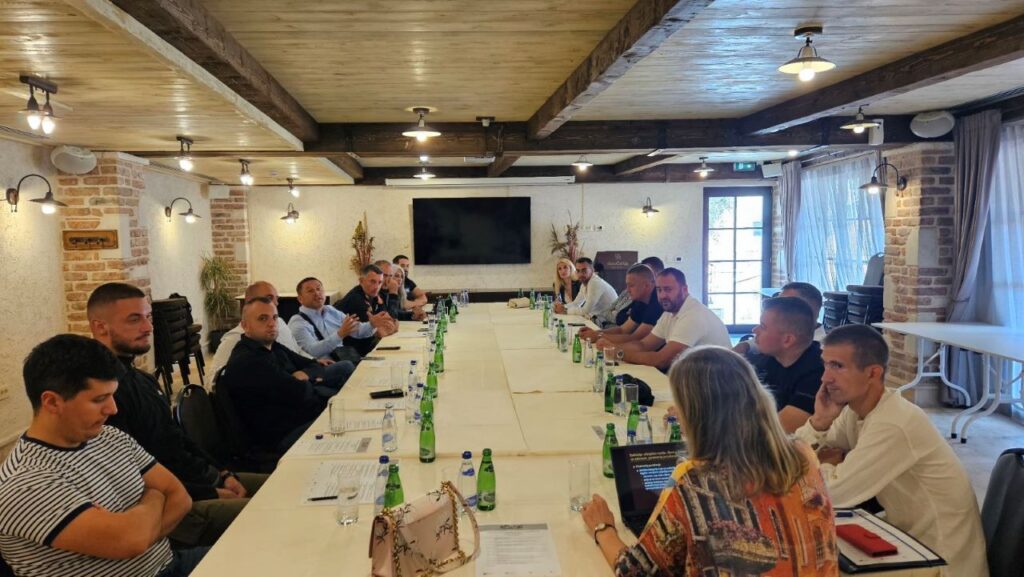Strengthening the capacity of the police force to act more effectively and sensitively towards minors, whether they are offenders or victims, is crucial for improving the prevention of peer violence and juvenile delinquency. Police officers are often the first responders to this growing problem, as highlighted during today’s training organized by the Centre for Civic Education (CCE) in Bar for 21 police officers from the Southern part of Montenegro, aimed at enhancing their competencies in this field.
The introductory presentation was delivered by Nikola Đurašević, Programme associate at the CCE, who presented key findings from research on peer violence and juvenile delinquency.
Dijana Popović Gavranović, Head of the Expert Service of the Supreme State Prosecutor’s Office, provided detailed insight into the procedures for observing and assessing minors within the preparatory process.
“The training has highlighted several areas that need to be addressed in the near future. Firstly, there are not enough police officers and inspectors specializing in juvenile cases, and this is something the police need to prioritize. This issue has been raised for a long time, but now the problem has become quite significant. Additionally, there is increased pressure on the Police Directorate because schools often try to shift responsibility by directing parents to file reports with the police, even for the mildest issues. These are the two key points I would emphasize from this training, and this is something the civil sector should also work on in the future to provide support to the Police Directorate. This would ensure they handle cases appropriately and have enough personnel; while also communicating to schools that not every instance of violence requires police intervention. Much more should be done within schools before involving the police,” stated Kristina Mihailović, Executive Director of the NGO Parents, who was also a trainer during the training.
The training emphasized the importance of mediation in criminal proceedings involving minors, particularly the reconciliation process between minors and the injured parties. Topics such as criminal offenses against sexual freedom committed against children and the specific procedures for handling child victims in criminal cases were also covered.
The training is part of the project HEART: Helping Empowerment and Resilience for Today’s Youth, implemented by the CCE with financial support from the European Union and co-financed by the Ministry of Public Administration.
Itana Gogić, Project Assistant


